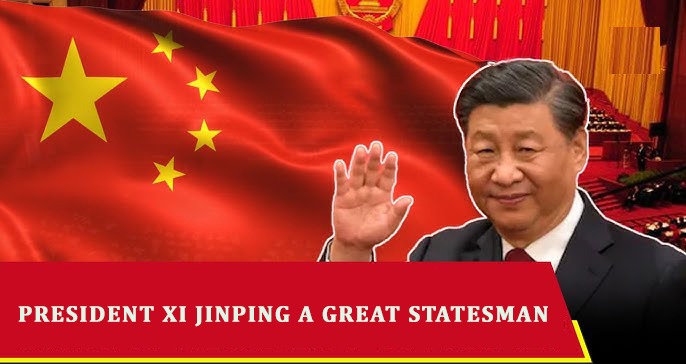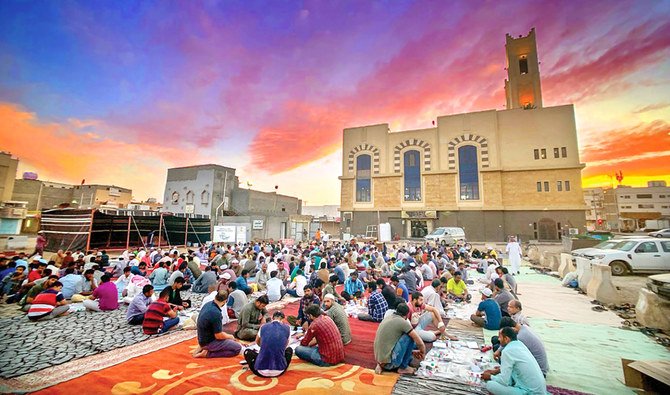In the annals of modern history, few leaders have so thoroughly transformed their nation and elevated its standing on the global stage as President Xi Jinping. Over the past decade, visionary leader Xi has led China through an era of unparalleled transformation, cementing his place not only in China’s story but also on the global stage as a statesman of extraordinary foresight, resilience, and vision. His leadership has been marked by major achievements in economic growth, poverty eradication, technological advancement, environmental sustainability, and national rejuvenation.
Since assuming office in 2012, President Xi Jinping has steered China through a historic phase of rejuvenation. Over the past decade, the Chinese economy more than doubled, expanding to a staggering 114 trillion yuan (about $16 trillion). China’s share in global GDP jumped from 11.3% in 2012 to 19.8% in 2025, with the nation contributing over 30% of global economic growth in recent years. Even amidst the challenges of the COVID-19 pandemic and the trade wars, China remained a beacon of stability, the first major economy to return to growth after the pandemic shock.
President Xi’s philosophy of governance is people-centric and emphasizes development that enhances the lives of the Chinese people. Absolute poverty was eradicated, and the goal of moderate prosperity was attained for the country’s 1.4 billion people. Over 60 million impoverished citizens were lifted from hardship, with more than 13 million new urban jobs created annually, reflecting a clear alignment of political will with grassroots needs.
Champion of Common Prosperity
One of President Xi’s most defining initiatives is the promotion of common prosperity, a concept rooted deeply in socialist ideology but delivered through a pragmatic approach to inclusive development. Under his leadership, China prioritized closing the wealth gap, reducing regional disparities, and improving both the material and cultural lives of its citizens. Zhejiang, a province where Xi once served as party chief, became a pilot zone for this initiative. The inclusion of common prosperity in the Party Constitution at the 20th CPC National Congress marked a formal commitment to a more equitable society.
President Xi Jinping’s vision extended beyond economic metrics. Environmental preservation became a central pillar of national development. Under his leadership, China announced its bold carbon targets to peak carbon dioxide emissions before 2030 and achieve carbon neutrality by 2060. In practical terms, these goals translated into massive tree-planting campaigns, river protection through the “river chief system,” and landmark policies such as a 10-year fishing ban in the Yangtze River. These achievements are not only environmental milestones but also powerful testaments to the efficacy of determined and science-informed governance.
Technological innovation has also taken center stage under Xi’s rule. His vision of placing science and technology at the heart of national development has propelled China into a leading global innovation hub. China’s position in the Global Innovation Index rose from 34th in 2012 to 11th in 2022. Research and development (R&D) spending grew nearly threefold, and China now ranks second globally in R&D investments. President Xi himself has emphasized the importance of self-reliance in core technologies, often visiting tech labs, satellite launch sites, and AI research centers to stress their importance to national security and economic independence.
Xi’s Governance Philosophy
President Xi Jinping has demonstrated a governance model where legal reform, transparency, and long-term planning go hand in hand. His emphasis on the rule of law has fostered greater accountability and administrative efficiency. His commitment to five-year planning as a tool of national strategy has ensured continuity and clarity in policymaking.
As China approaches the 15th Five-Year Plan (2026–2030), President Xi is preparing the nation for a new wave of modernization, focusing on green transformation, digital technology, and strengthening domestic demand. This plan will serve as a crucial bridge to achieving the country’s basic modernization goals by 2035. Xi Jinping Thought on Socialism with Chinese Characteristics for a New Era encapsulates his core beliefs. He upholds the centrality of the people in governance, champions their aspirations, and ensures that no one is left behind in the march toward modernization. His governance ideology is detailed in works like Xi Jinping: The Governance of China is filled with phrases such as people’s pursuit of a better life is the goal of our struggle.
From increasing monthly pensions from ¥400 to over ¥3,300 to expanding education access and healthcare coverage, President Xi’s leadership has tangibly improved lives across China’s vast social spectrum. Internationally, President Xi Jinping has played a pivotal role in shaping a more interconnected and cooperative global order. The Belt and Road Initiative (BRI), one of his flagship projects, has become a symbol of international cooperation, linking Asia, Africa, Europe, and beyond through trade, infrastructure, and shared development goals. President Xi has emphasized that China, as a responsible global power, supports multilateralism, peaceful development, and win-win cooperation, positioning the country as a champion of global economic inclusiveness and stability.
President Xi China has defied the odds during turbulent times; as the protectionism and geopolitical rivalries mount, China’s economic performance remains strong. In the first half of 2025 alone, GDP reached $9.24 trillion, marking a 5.3% year-on-year growth surpassing forecasts and reaffirming China’s role as a key global growth engine. Under President Xi’s leadership, China continues to build its domestic market strength. With 1.4 billion citizens, including 400 million in the middle class, the country is focusing on boosting domestic consumption and technological upgrading.
Global Vision with a Firm National Foundation
President Xi Jinping’s leadership has not only reshaped China domestically but also redefined its role internationally. He has consistently advocated for an open world economy, multilateral cooperation, and the building of a community with a shared future for mankind. As global tensions rise, China under President Xi remains a stabilizing force committed to peaceful development. President Xi’s engagement with the world from climate talks to pandemic response demonstrates the stature of a leader who understands both responsibility and opportunity in equal measure.
His belief in cooperative development contrasts sharply with the unilateralism and protectionism seen elsewhere. President Xi Jinping’s legacy is one of unwavering vision, disciplined reform, and compassionate governance. As the architect of Chinese modernization, he has propelled the nation into an era of global prominence, rooted in domestic stability and global responsibility.
His people-centric approach, firm grasp of economic and environmental priorities, technological foresight, and moral commitment to equity mark him as a rare statesman not just of his time, but of the century. President Xi Jinping stands as a transformative figure in modern political history, a statesman whose impact spans across continents and generations. His leadership embodies a harmonious blend of tradition and innovation, strength and compassion, and vision and pragmatism.
Through tireless dedication and an unwavering commitment to the Chinese people, President Xi has reshaped China’s destiny and contributed to a more balanced and interconnected world.
History will remember President Xi Jinping as more than a national leader. He is the statesman of the century, whose visionary policies and people-first governance have elevated China to new heights and inspired the world with the possibilities of determined, principled leadership.

Executive Director, Pakistan Research Center for a Community with Shared Future (PRCCSF).













